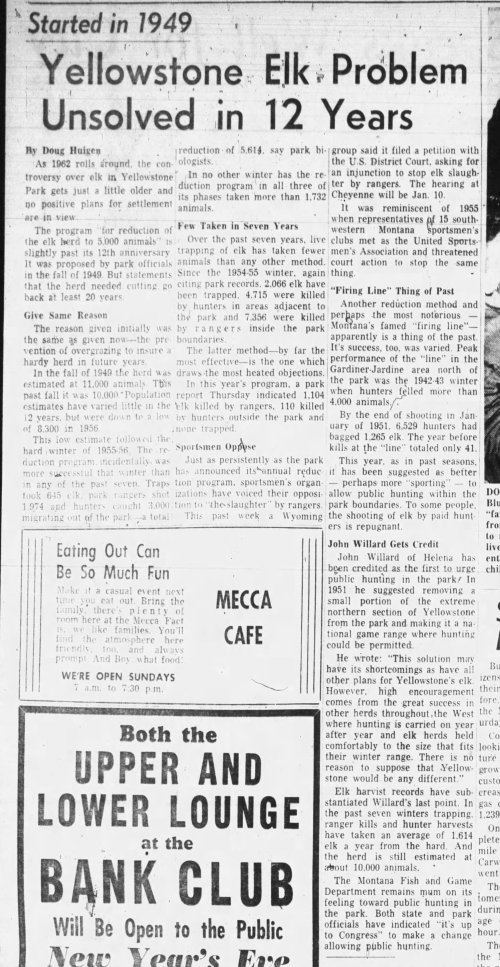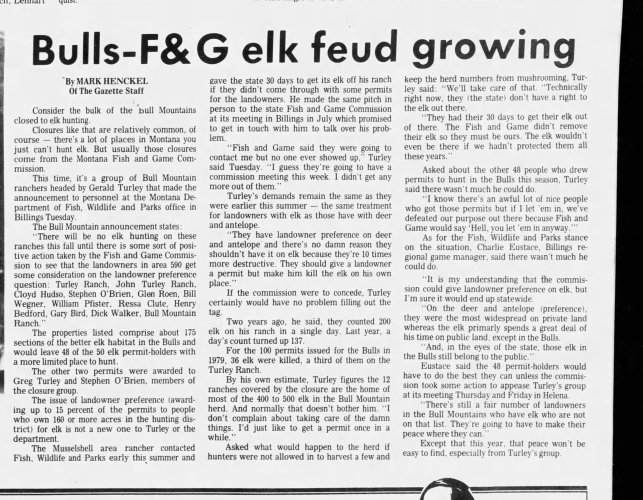Largely what has changed is wolves. The elk used to live in the mountains but now want badly to live on the valley floor. I think it is a natural reaction to wolf presence. There are ranches in Paradise Valley that fenced their haystacks roughly 20 years ago that had never been fenced going back to the late 1800s.I just wonder what has changed? Brucellosis isn’t new, the northern elk herd was 2x what it is now when you moved into the area, and average snow has probably been less over the last decade. So wolves and the price per acre? I just wonder if we are fixing or making the problem worse with money?
I believe that there is value to keeping these working ranches intact even if it doesn't solve the elk problem. Could it possibly make it worse? I believe it could, but we don't have much to lose by trying.






